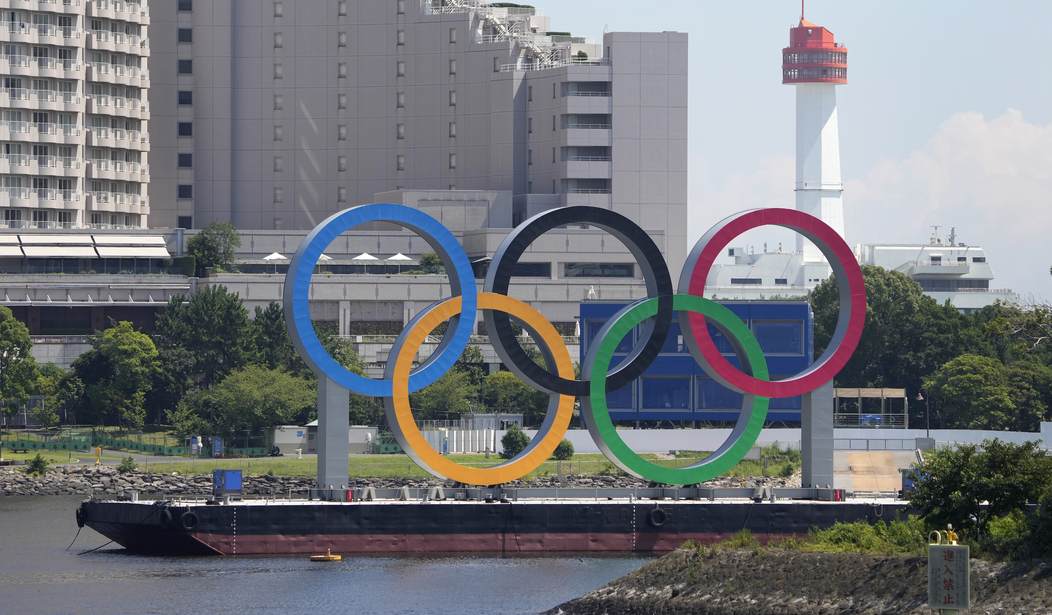The recently completed Tokyo Summer Olympic Games were, in many respects, an unmitigated flop. NBC's prime-time coverage averaged a paltry 12.9 million viewers, making for the weakest ratings since NBC first began airing the Summer Games in 1988. Overall, the Tokyo Games saw a 49% ratings drop since the previous Summer Games, 2016's rendition in Rio de Janeiro, and a whopping 58% drop compared with the 2012 Summer Games in London. Many factors are likely to blame: The time difference between the U.S. and Japan made for difficult live viewing; the physical venues lacked camera-friendly enthusiasm due to the COVID-19 pandemic depriving the Games of in-person fan attendance and a general sense that these Games featured fewer megapersonalities along the lines of yesteryear's Michael Phelps and Usain Bolt.
But for all the recent Games' myriad woes, they were highly useful in at least one respect: They reminded countless viewers across the world of the importance, indeed the necessity, of nationalism and the indispensable nature of the nation-state as the building block for any just and worthwhile society.
The International Olympic Committee, or the IOC, which has run the modern Summer and Winter Games since its founding in 1894, is a quintessentially corrupt and venal international organization. There are too many ethical scandals to fully recount. Recent disgraces include: revelations that several IOC members had taken improper gifts in advance of the 2002 Winter Games; the IOC's failure to kick Russia out of the 2016 Summer Games in Rio after the World Anti-Doping Agency recommended as much following the metastasis of mass state-sponsored doping in Russia; and the shameful fact that it took a half-century for the IOC to finally observe a moment of silence (in Tokyo) for the Munich 11, the Israeli Olympians murdered in 1972 by Palestinian terrorists affiliated with Black September.
The IOC, of course, also has a long and inglorious track record of mollycoddling authoritarian regimes. The 1936 Summer Games took place in Hitler's Berlin; the 1980 Summer Games were held in Soviet-era Moscow over a U.S.-led 66-country boycott; and the 2022 Summer Games are currently set to be held in Beijing -- the crown jewel city of the world's foremost communist state, now deemed by U.S. presidential administrations of both political parties to be committing genocide in the Xinjiang province against the Uyghur Muslim ethnic minority.
Recommended
The IOC's nature as a blighted, antiquated and morally obtuse transnational institution, however, serves as a stark juxtaposition for the red-blooded, patriotic, nation-state-based athletic competitions that constitute the Games themselves. Where else, in an increasingly globalist world shorn of particularism and provincial loyalties, can we unapologetically drape ourselves in our national flags and cheer on our motherlands in athletic combat? Is there any other major event that so ubiquitously features national flags themselves?
The IOC's institutional shortcomings aside, the Olympics therefore serve as a timely and poignant reminder of a simpler, indeed better, era -- one well before John Lennon's patently stupid "Imagine" utopia, back when the global order was structured along the realist lines of what the great 18th century conservative statesman Edmund Burke famously referred to as a "partnership not only between those who are living, but between those who are living, those who are dead and those who are to be born." Such a "partnership" is the only legitimate basis for a coherent, well-functioning society in which interdependent mutual bonds of citizenship permeate throughout. That means the nation-state, and the proliferation of the nation-state, in turn, means the proliferation of nationalism itself. Trite globalist paeans aside, what is the Olympics' Opening Ceremony, distinguished as it is by the presence of so many distinct peoples, if not an ode to the nation-state and to nationalism?
We live in a day and age in which nationalism is excoriated as a vestigial outlier from an older, less "enlightened" era. The global left, aided and abetted by a peripatetic, jet-setting ruling class for whom the pursuit of open borders, open trade and free flow of capital represents a secularist Highest Good, seeks nothing less than the ultimate eradication of the nation-state and all its attendant benefits -- cohesion, solidarity, loyalty, pride, place and an enduring attachment to home and hearth. Left-wing movements in First World nations all across the globe increasingly vie with one another to see who can most quickly and aggressively outsource their citizens' sovereignty to unaccountable (or barely accountable) transnational tribunals, such as the United Nations, the European Union and the World Trade Organization.
The onus falls squarely on sober-minded conservatives to stand athwart the madness and point toward a better, saner path forward. The Olympics can, and should, help to inspire that effort.

























Join the conversation as a VIP Member